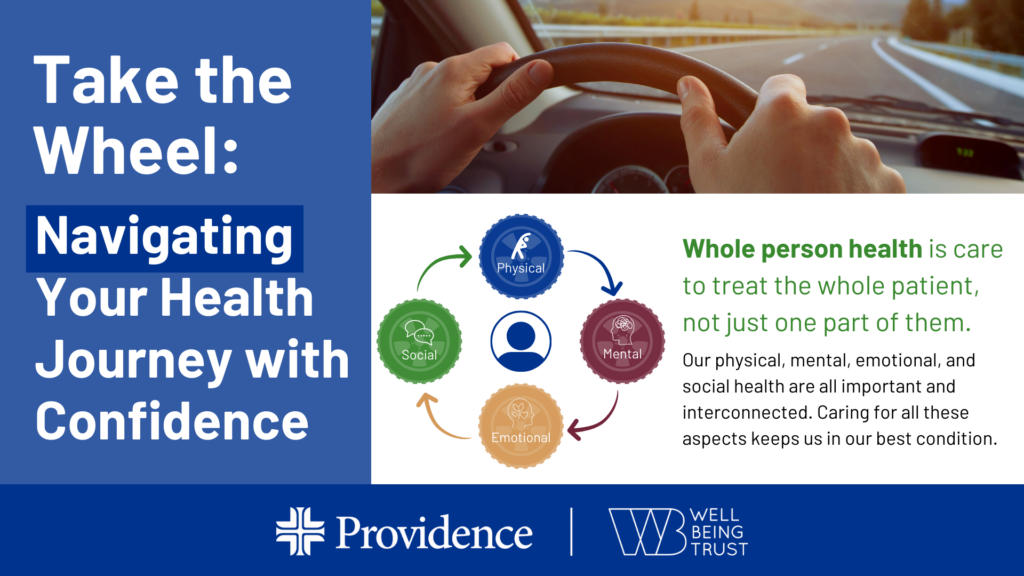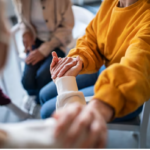A walk to improve your mental health? Journaling to improve your emotional health? Joining a social club to improve your physical health? These are possible scenarios when looking through the lens of whole person health.
According to the National Institutes of Health, whole person health “involves looking at the whole person—not just separate organs or body systems—and considering multiple factors that promote either health or disease. It means helping and empowering individuals, families, communities, and populations to improve their health in multiple interconnected biological, behavioral, social, and environmental areas.”
When trying to improve one aspect of your health, you open the door to potentially improving others as well. This is whole person health, and how an activity like walking outdoors, for example, can improve your physical health which in turn can improve your mental, social and emotional health.
“Health, as defined by the World Health Organization, is a state of complete physical, mental and social well-being, not merely the absence of disease and infirmity,” says Dr. Arpan Waghray, CEO of Providence’s Well Being Trust. “This is a very important, foundational piece in thinking of whole person health. Understanding that health and well-being has multiple dimensions to it, and to promote health and well-being requires us to focus on all these multiple factors.”
The internet’s abundance of information can be overwhelming, making it challenging to determine where to start. Additionally, those who desire to improve their health may understand the concept and its importance but can find it difficult to make changes amid busy schedules and daily responsibilities.
The good news is there are numerous ways to integrate health improvements into your means of living, and by widening the scope to consider whole person health, you have more options that you can pick and choose what’s best for you, allowing you to take control of your health and care.
Here are some ideas on how to improve your physical, mental, emotional and social health:
Physical
- Schedule 10-minute walk breaks into your day
- Stretch after meetings or busy times
- Take deep breaths when you’re feeling stressed
Mental
- Journal at the end of your day to highlight positives and acknowledge negatives
- Say out loud one thing you’re grateful for every day
- Put your phone on silent during busy times to avoid overstimulation
Emotional
- Express yourself through art or listen to your favorite song
- Scan your emotions during intense times
- Acknowledge, but don’t question or disregard
- Compliment yourself on the things you do well or like about you
Social
- Call or video chat family and friends to connect or reconnect
- Join a local club or recreational group activity
- Volunteer at an organization that supports a cause you care about
If you or someone you know is struggling or in crisis, help is available. Call or text 988 or chat 988lifeline.org
The information on this website is not intended to be medical advice. Medical advice can only be provided by your personal health care provider.






